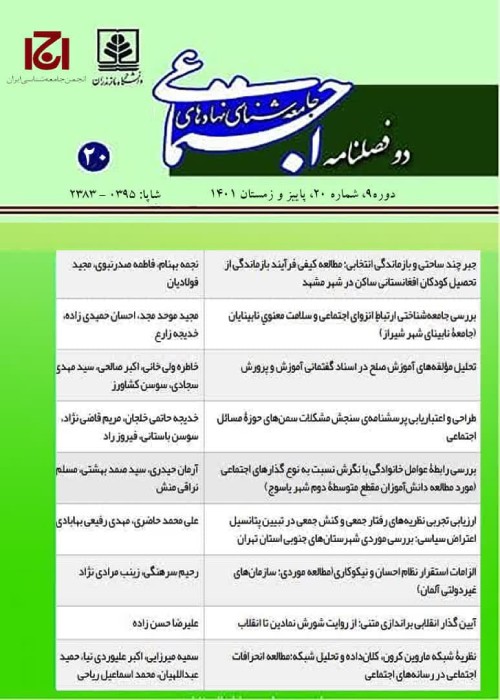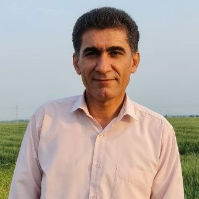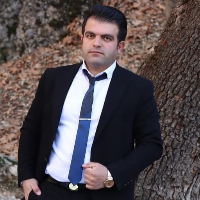The Relationship between Social and Cultural Capital and Environmental Responsibility
Today, one of the most important issues of human life is to pay attention to the environment in which one lives. The purpose of this study is to examine the relationship between social and cultural capital and environmental responsibility based on the concept of capital in Bourdieu's thought.
This research was carried out using a survey method with a statistical population of citizens aged 15 years and older in Yasouj city. Based on Cochran's formula and the variance calculated from the pre-test with 95% confidence, 323 people were selected as the sample size. The validity of the questionnaire was also measured by its formal type and reliability using Cronbach's alpha.
The research results showed a significant relationship between social capital and embodied cultural capital and environmental responsibility. There is no significant relationship between contextual variables (gender, education, employment status, and marital status) with environmental responsibility. Structural equation modeling showed that 44% of the variance of the environmental responsibility variable is explained by the variables of social capital (with more influence) and cultural capital.
Based on the findings of this research and Bourdieu's theory, the more social and cultural capital citizens have, the better their environmental responsibility. In the city of Yasouj, due to the commitment to ethnic and tribal relations and ties, having social capital in the form of social support in communication networks plays a very effective role in encouraging people to behave in an environmentally responsible manner. Therefore, in line with the theoretical and practical training of people in environmentally responsible behavior using citizens, it is suggested to issue licenses to NGOs in the field of environment with minimal government interference, holding workshops, conferences, and public gatherings, strengthening communication bridges between people and responsible organizations in the field of environment, especially through virtual space, strengthening communication and building trust between people and non-governmental organizations, including religious institutions, and educating families through schools.
- حق عضویت دریافتی صرف حمایت از نشریات عضو و نگهداری، تکمیل و توسعه مگیران میشود.
- پرداخت حق اشتراک و دانلود مقالات اجازه بازنشر آن در سایر رسانههای چاپی و دیجیتال را به کاربر نمیدهد.




